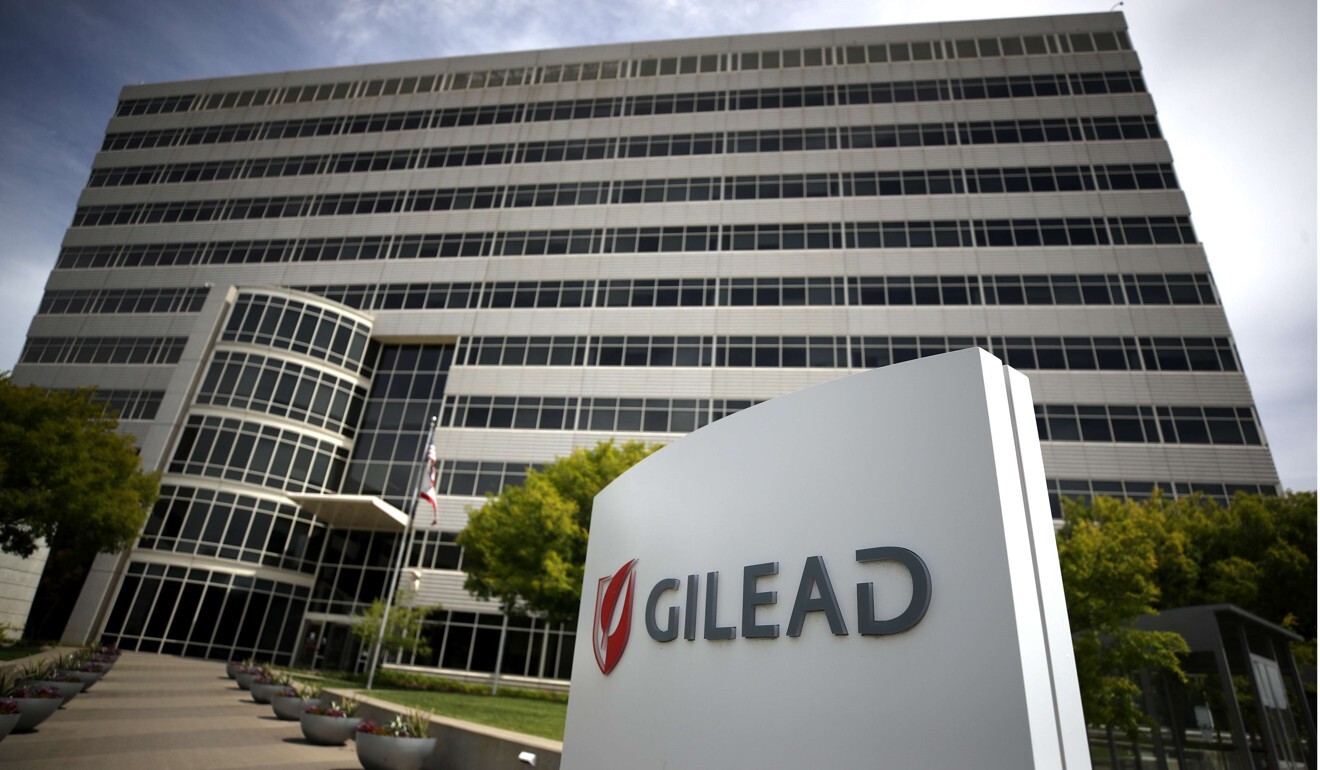Antiviral drug remdesivir shows mixed results in treating Covid-19 patients
- No significant benefits seen in Chinese clinical trial but researchers say sample size was smaller than targeted
- US government-led study meanwhile finds patients with ‘advanced’ symptoms recovered faster than those given placebo

A Chinese clinical trial of the antiviral drug remdesivir showed no significant benefits to patients with Covid-19, even as it was seen to yield faster recovery times for those suffering from the disease in a US government-led study that may fast-track its use in North America.
With the worldwide death count from the new coronavirus now exceeding 227,000 people, many in the medical community pinned hopes on remdesivir as a drug to treat the respiratory disease. That optimism received a lift from a flurry of US announcements about the medication on Wednesday, but experts warned against overinterpreting the findings.
The caution is supported by remdesivir study results on Covid-19 patients in China, which found the drug did not significantly speed up the time to clinical improvement, clearance of the virus, or mortality rates in patients with serious symptoms, as compared with a placebo group.
But the results, published in The Lancet on Wednesday, were limited by the researchers’ inability to reach their target sample size of patients, as infection rates in China declined. This diminished the statistical scope of the study and the ability to draw certain conclusions, the researchers said.
It contrasted with the US government-led study of patients in multiple countries and the United States that found patients with “advanced” Covid-19 who received remdesivir recovered faster than similar patients who received a placebo.
The findings were announced by the National Institutes of Health (NIH) on Wednesday, and treated with cautious optimism by US National Institute of Allergy and Infectious Diseases director Anthony Fauci, who sits on the White House coronavirus task force. Fauci called the results “highly significant” but stressed that the latest data still needed to be analysed and peer-reviewed, noting the findings could be seen as “proof of concept” that a medicine could block the virus. The NIH statement did not include detailed data for the study.
Fauci said the US Food and Drug Administration was working with remdesivir drug developer Gilead Sciences “to figure out mechanisms to make this easily available to those who need it”, while a report from The New York Times said the FDA was likely to authorise emergency approval of the drug, citing a senior official.

Based on data collected from 1,063 patients, the NIH said patients who received remdesivir had a 31 per cent faster time to recovery than those who received a placebo. The median time to recovery was 11 days for patients treated with remdesivir compared with 15 days for those who received a placebo.
The NIH said their results suggested a “survival benefit” with a mortality rate of 8 per cent for the group receiving remdesivir versus 11.6 per cent for the placebo group.
The Chinese clinical trial, which looked at 237 patients, did find a shorter median recovery time for a group of patients receiving remdesivir within 10 days of symptom onset. Those receiving treatment had a median recovery of 18 days, versus 23 days for those on a placebo. But researchers stressed that the findings were not statistically significant.
They also did not find any indication that remdesivir produced significant a reduction in Sars-CoV-2 RNA loads in upper respiratory tracts, despite the fact that this was the case in preclinical models of infection with coronaviruses.
“We found that this dose regimen of intravenous remdesivir was adequately tolerated but did not provide significant clinical or antiviral effects in seriously ill patients with Covid-19,” the researchers said, calling for ongoing studies with larger sample sizes to improve understanding of the effect of remdesivir on Covid-19.
Remdesivir is not yet licensed or approved anywhere globally for the treatment of Covid-19. The drug was originally developed for use in infectious viral diseases. It was not found to be as effective as hoped in human trials to treat Ebola, but had some promising results in animal trials to treat Middle East respiratory syndrome (Mers) and severe acute respiratory syndrome (Sars), two other coronavirus diseases.
Other experts said results from early clinical trials needed further inquiry to be confirmed and that a range of factors came into play when considering effectiveness.
In comments to Beijing-based news outlet Caixin, leading respiratory doctor Cao Bin, who was involved in the Chinese trial, said the results were the “most convincing” because of the rigorous design of the study. But he also noted it was difficult to compare two studies as their end-point criteria were different.
“If the end points of the research aren’t the same, they are two different studies, basically they can’t be compared,” he said, noting that even though remdisivir was not developed for Covid-19, it showed some effect within the parameters of the US test.
In a comment published in The Lancet online, John Norrie, a professor of medical statistics and trial methodology at the University of Edinburgh, said that while the Chinese clinical trials were well designed, the results were “inconclusive” given the absence of statistical significance.
“However, a trial is not just its primary clinical outcome – there are important data on safety, viral load, and secondary outcomes,” he said.
Norrie pointed to results from the study that 22, or 14 per cent, of 158 patients on remdesivir had died versus 10, or 13 per cent, of 78 on a placebo, and to the finding that there was no sign the viral load decreased differentially over time between the two groups.
Josh Davis, president of the Sydney-based Australasian Society for Infectious Diseases, called the preliminary release of the NIH findings, which came without a full release of the data, “irresponsible”.
“In my view it is irresponsible and potentially misleading to release cherry-picked data highlights without presenting the full methods and detailed results,” he said.
He noted that had the researchers with the Chinese clinical trial been able to use a larger sample size, the study “may well have shown a significant benefit”, as there were indications in the data that patients may see a faster clinical improvement time, especially in those who were treated earlier.
“Taken together, these trials suggest remdesevir probably has a small benefit if started early, but larger randomised controlled trials with fully presented and peer-reviewed data are needed before any conclusions are drawn,” he said.
Lisa Sedger, head of the viruses and cytokines research group at the University of Technology Sydney, said she would “caution against any early conclusions” regarding remdesivir in general, noting that the timing and conditions in which the drug was delivered would affect its efficacy.
“For example, it may turn out that it is only effective when given early in the course of the disease because possibly by later times there are already other pathologies including significant lung tissue damage,” she said, adding the drug may also be more effective when delivered alongside treatments that target immune response.

A number of studies on remdesivir are currently under way around the world, and in addition to the NIH statement and data from the Chinese trials on Wednesday, the drug’s developer Gilead also released some results.
Its trial, which did not compare to a placebo, found that patients receiving a 10-day course of remdesivir achieved similar improvement in clinical status compared with those taking a five-day course, a finding which could potentially shorten treatment time meaning more patients could be treated with the current supply of the drug, the company said.